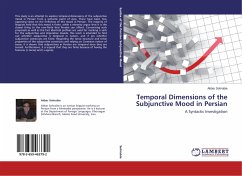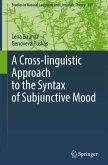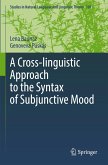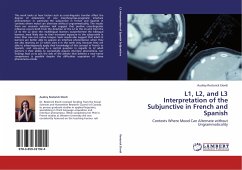This study is an attempt to explore temporal dimensions of the subjunctive mood in Persian from a syntactic point of view. There have been two opposing views on the finiteness of this mood in Persian. The majority of linguists hold that this mood is finite, while a minority argue that it is the closest thing to the non-finite that Persian can afford. Concerning such proposals as well as the fact identical prefixes are used for marking a verb for the subjunctive and imperative moods, this work is intended to find out whether subjunctive is temporal in nature, and if yes whether subjunctive constructs are finite. Regarding the tense structure and tense properties of the subjunctive constructs and relying on Comriean notion of tense, it is shown that subjunctives in Persian are temporal since they are tensed. Furthermore, it is argued that they are finite because of having the features [+tense] and [+agree].
Bitte wählen Sie Ihr Anliegen aus.
Rechnungen
Retourenschein anfordern
Bestellstatus
Storno








